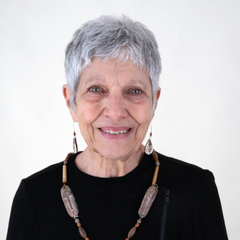Reconstructing Palliative Care Practice: A Beginning
Date and Time
October 26, 2024
10 am - 5:30 pm ET
NOTE: This course has a registration capacity of 50 participants.
Offered at Fordham's Lincoln Center Campus. Directions.
Completion of this class will result in the receipt of six and one-half (6.5) continuing education hours.
-
The mission and values of social workers practicing in healthcare and palliative care specifically can be overshadowed in hierarchical systems where we are a minority profession. The goal of this workshop is shared learning to begin to reconstruct palliative care practice, questioning some primary constructs that have infused healthcare practice and policy. By introducing experts beyond palliative care, we evolve a model that both integrates and interrogates the learnings and experiences of clinicians over the past half-century. Our intention is to highlight the unique “red thread” of skill, authenticity, and values that is at the core of social work practice and essential to the care of patients and families as we self-educate toward the goals of restoring trust, challenging biases, and mitigating inequities. As we follow this connecting thread through aspects of our work such as ethics, inequities, culture, and spirituality across settings and diagnoses, we maximize our abilities to identify and reconstruct opportunities for honoring divergent values, enriching the care of patients and families, enhancing meaning in the work and impacting legacy. The established curriculum, insights, and group discussion are the foundation for reinforcing our social justice mandate, identifying skills to challenge inequities and honor sources of meaning to both sustain and enrich the self, the work, and our profession. This shared time creates an opportunity for social workers to review their participation in promoting practices that may in fact perpetuate a white western model of responding to serious illness.
LEARNING OBJECTIVES
Social workers who take this class will be able to:
- Identify and influence the challenges and opportunities implicit in the work of palliative, hospice, and health social work to influence and mitigate bias and inequities, thereby living social work values and impacting sustainability.
- Recognize and maximize the clinical opportunities that exist within transitions, across settings, and diagnoses to identify and mitigate the potential for inequities.
- Intervene in pain and symptom management and language and word choice integrating emerging research that connects these aspects of care to inequities, outcomes, patient and family distress, and unintended harms such as complicated bereavement and legacy.
- Identify foundational concepts from a variety of scholars and fields to interrogate the history of palliative care practice, inform our work going forward, and mitigate unintended consequences.
- Isolate the role of language and word choice in conversation, documentation, and policy to identify opportunities to highlight the cultural and spiritual beliefs and values that individualize choices and decisions.
- Learn about using the paradigm of sustainability to foster authentic discussions about the support needed to do this work over time throughout a career.
-

Terry Altilio, LCSW, APHSW-C
Terry Altilio, LCSW, is a Palliative Social Worker with over 30 years of direct practice in acute care settings. She is a recipient of a Mayday Pain and Society Fellowship Award 2006 and a Social Work Leadership Award from the Open Society Institute’s Project on Death in America to support a social work postgraduate fellowship and a social work listserv that currently networks over 900 social workers. In 2013, Terry was selected to receive the Project on Death in America Career Achievement Award from the Social Work Hospice and Palliative Network. She lectures nationally and internationally on topics such as pain management, ethics, palliative care, and psychosocial issues in serious illness care, teaches in post-masters programs at NYU, Smith, and is guest faculty in an online course sponsored by the Shiley Haynes Institute for Palliative Care, California State University. In addition to co-authored journal publications, she is co-editor with Shirley Otis-Green and John Cagle of the Second edition of the Oxford Textbook of Palliative Social Work, 2022, and co-editor with Bridget Sumser and Meaghan Leimena of Palliative Care – A Guide for Health Social Workers, published in 2019. Most recently, she has co-edited Mirrors and Windows Reflections on the Journey of Serious Illness Practice.

Vickie Leff, LCSW, APHSW-C
Vickie Leff is a Palliative Care Consultant and an Adjunct Instructor at the UNC School of Social Work, Chapel Hill. With over 35 years of clinical practice experience in oncology, palliative care, and hospice, Vickie presents on topics such as moral distress and resilience to several national educational organizations and institutions. Recently, she served as the Executive Director of SWHPN and, prior to that, as the Executive Director of the Advanced Palliative Care & Hospice Social Work Certification (APHSW) board, an organization that oversees the implementation and administration of this evidence-based certification. Vickie’s work has been published in Health Affairs, the Journal of Pain and Symptom Management (JPSM), the Journal of Palliative Medicine, and other journals with a focus on moral distress and resilience. She is on the editorial board of Social Work in Health Care Journal. She is a member of the Board of Directors for the Center for Practical Bioethics. She is an editor of the book Mirrors & Windows: Reflections of the Journey in Serious Illness Practice and co-author of Helping Children Cope when someone they Love Has a Serious Illness. Vickie earned her Master of Social Work from Simmons School of Social Work.
-
Class fees are listed below:
- Full Tuition - $320
- Fordham GSS Alumni - $280
- Current Field Instructor for a Fordham MSW student - $280
- Current Fordham GSS Adjunct Faculty (on-campus and online) - $280
- SWHPN Member - $280
- Current Military and Veterans - $280
- Non-Fordham Current MSW or Social Work Doctoral Student - $270
- Current Fordham MSW or PhD Student - $260
- Fordham Alumni Palliative Care Fellow - $260
Continuing Education Hours
Completion of this class will result in the receipt of six and one-half (6.5) continuing education hours. CEHs are not awarded for partial completion of the class.